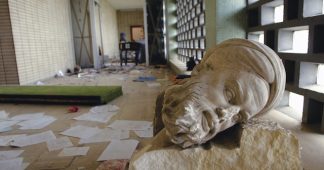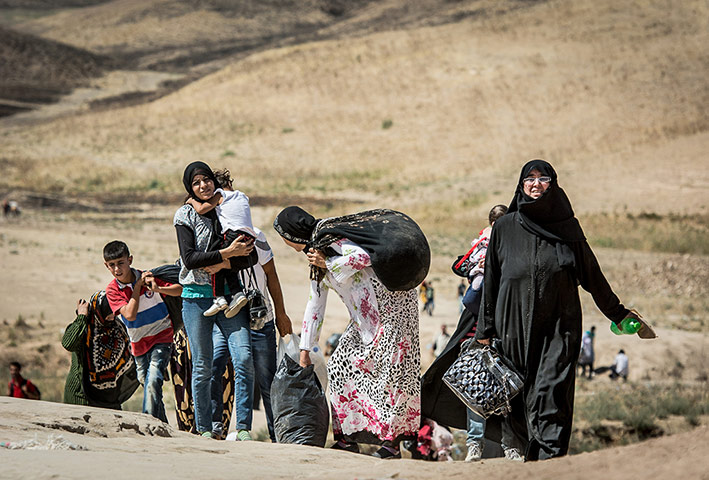The Mosul’s centuries-old al-Nuri Grand Mosque and its distinctive leaning minaret, one of Iraq’s most famous landmarks, was destroyed Wenseday.
Iraqi military blamed ISIS for the destruction, while ISIS’s news agency claimed claimed that the mosque had actually been destroyed by an American airstrike. It was not immediately possible to confirm either account, according to the New York Times.
The mosque is where the Islamic State leader, Abu Bakr al-Baghdadi, ascended a pulpit in 2014 and declared a caliphate after his fighters took control of Mosul and swept through other areas of northern Iraq and Syria. The destruction of the mosque and minaret — which are pictured on Iraq’s 10,000 dinar bank note — is another blow to the city’s rich cultural heritage and its plethora of ancient sites that have been damaged or destroyed during three years of Islamic State rule amd also during the attack against Mosul.
ISIS has destroyed a lot of archeological monuments, but it seems a little bit strange to have destroyed the monument it used itself.
Before ISIS and as a result of the US-British-Australian invasion of Iraq and of the practice of the invading forces, some of the most important treasures of the old Mesopotamian civilization have been destroyed or looted, including the ancient city of Babylon and the Archeological Museum of Baghdad.
The United States and its allies ignored the warnings of organizations and scholars concerning the protection of Iraq’s cultural heritage, including museums, libraries, archaeological sites and other precious repositories. Arsonists badly burned the National Library and looters pillaged the National Museum. Looters also damaged or destroyed many historic buildings and artifacts. The US constructed a military base on the site of ancient Babylon. Coalition forces destroyed or badly damaged many historic urban areas and buildings, while thieves have ruined thousands of incomparable, unprotected archeological sites.
DK
Also see
http://www.defenddemocracy.press/behind-iraq-war-destroy-arabs-memory-civilization/











